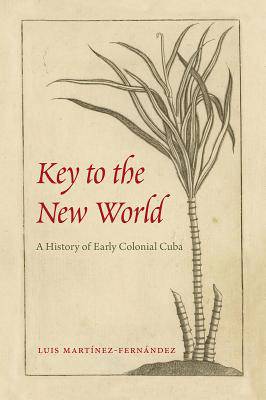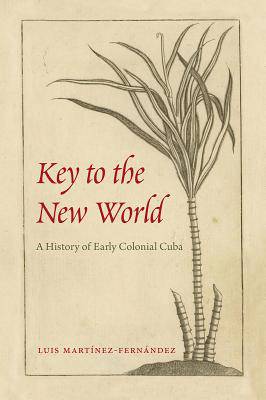
- Afhalen na 1 uur in een winkel met voorraad
- Gratis thuislevering in België vanaf € 30
- Ruim aanbod met 7 miljoen producten
- Afhalen na 1 uur in een winkel met voorraad
- Gratis thuislevering in België vanaf € 30
- Ruim aanbod met 7 miljoen producten
Omschrijving
Scholarly and popular attention tends to focus heavily on Cuba's recent history: its notoriety as the world's largest exporter of sugar and the Western hemisphere's first socialist nation. Key to the New World fills the gap in our knowledge of the island before 1700, examining Cuba's formative centuries in depth.
Luis Martínez-Fernández presents a holistic portrait of the island nation, interrelating its geography, economy, society, politics, and culture. He weaves these threads into a narrative that begins with the first arrival of indigenous people 10,000 years ago. He explores the conquest and establishment of colonial rule and how the island's geographic uniqueness made it an ideal launching pad for Spanish conquests into Central America, Mexico, and Florida. While considering the role of Cuba and the Caribbean as a theater for European power struggles, Martínez-Fernández also focuses intimately on the people who both influenced and were influenced by these larger, impersonal forces.
In these often-overlooked centuries, Martínez-Fernández finds the roots of many of Cuba's enduring economic, political, social, and cultural complexities. The result is a sweeping history, a seminal text that makes clear that to fully grasp revolutionary or contemporary Cuba we must first understand what came before.
Specificaties
Betrokkenen
- Auteur(s):
- Uitgeverij:
Inhoud
- Aantal bladzijden:
- 236
- Taal:
- Engels
Eigenschappen
- Productcode (EAN):
- 9781683400325
- Verschijningsdatum:
- 17/04/2018
- Uitvoering:
- Hardcover
- Formaat:
- Genaaid
- Afmetingen:
- 152 mm x 229 mm
- Gewicht:
- 521 g

Alleen bij Standaard Boekhandel
Beoordelingen
We publiceren alleen reviews die voldoen aan de voorwaarden voor reviews. Bekijk onze voorwaarden voor reviews.











